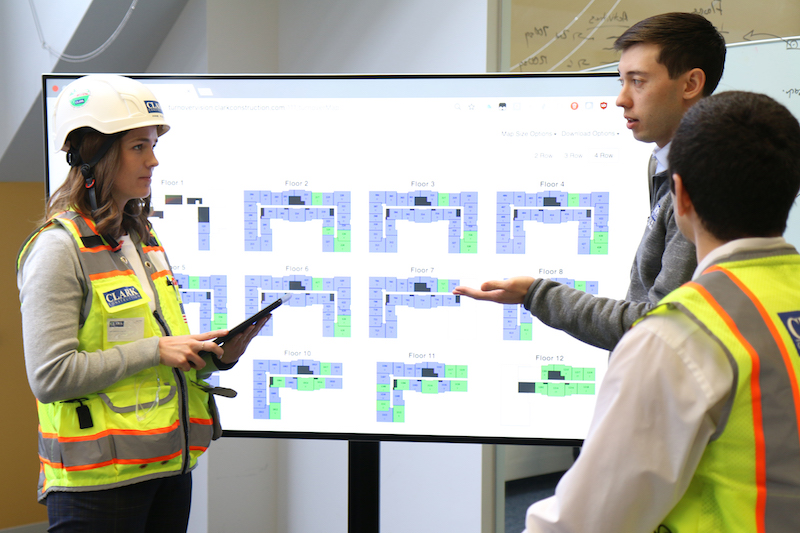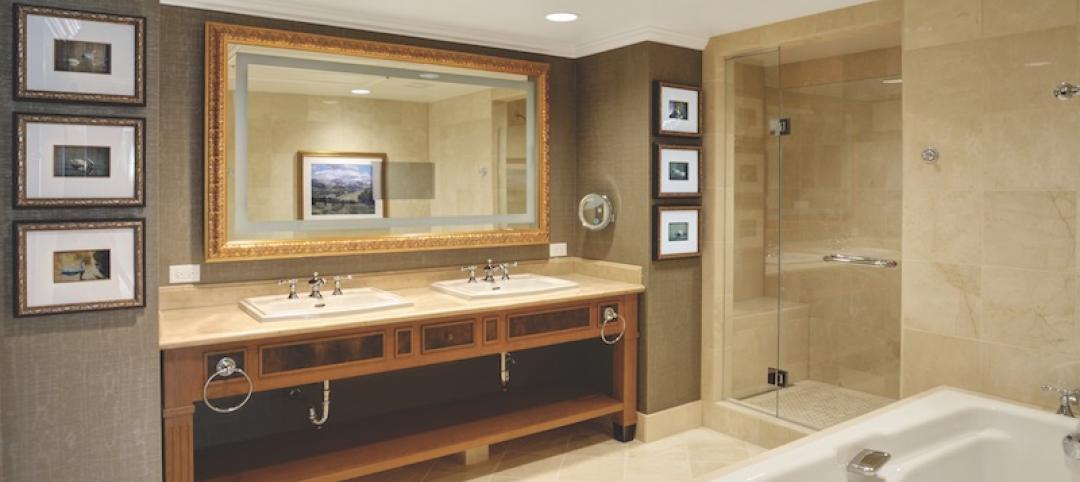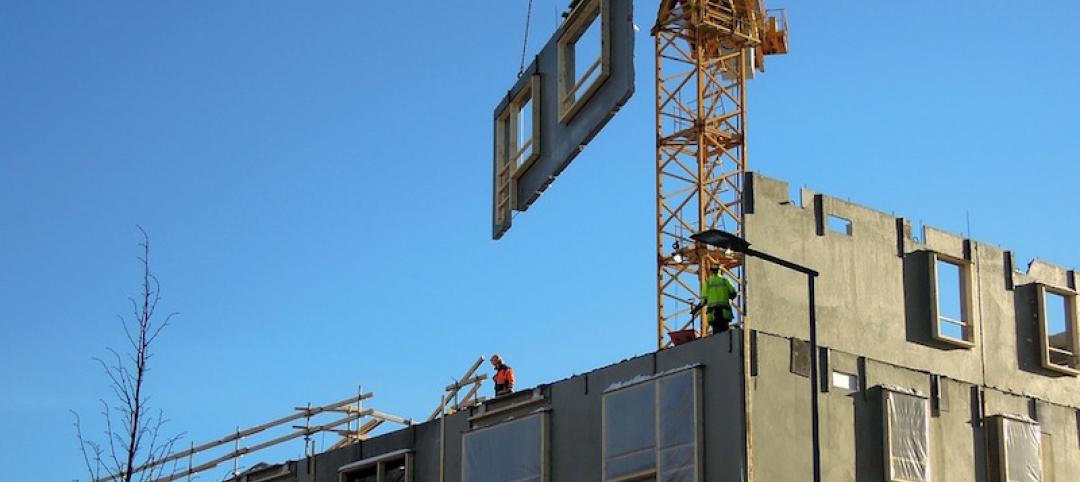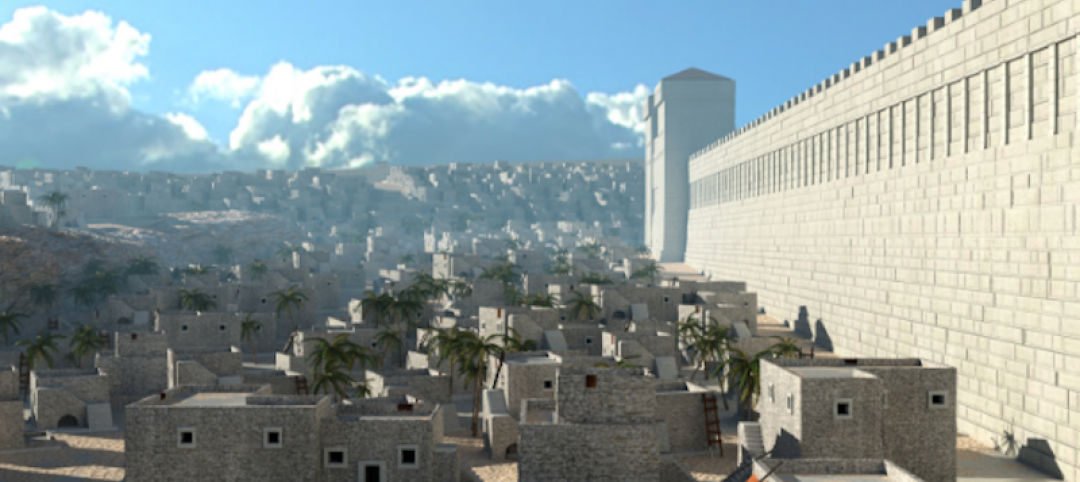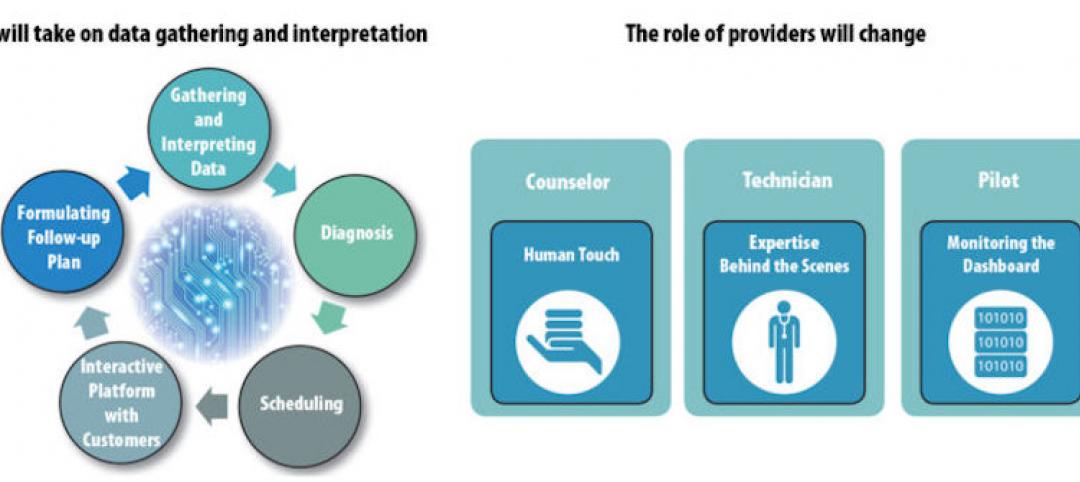Last year, Clark Construction started deploying Turnover Vision, an interactive punch list management application developed by the firm’s Research & Development Group, which combines punch list and scheduling data to optimize a project’s work plan.
Turnover Vision analyzes big data from a project’s punch list and organizes them into interactive heat maps and graphs. Using simplified architectural floor plans as the common communications platform, the dashboard provides a breakdown of real-time punch list status and turnover productivity rates.
The algorithm driving Turnover Vision’s dashboard “also allows us to anticipate productivity in the punch list phase,” says David Barritt-Flatt, director of research and development for Clark Construction in Bethesda, Md. The goal of this tool, he explains, is to reduce project closeout timelines and to improve the client experience through increased trust and transparency.
Prior to the implementation of Turnover Vision, which Clark piloted in 2016, the firm’s project teams were spending more than 15 hours each week documenting punch list items, manually updating PDF versions of turnover maps, and meeting with clients to discuss turnover rates.
Barritt-Flatt elaborates that deploying this dashboard not only eliminates a lot of administrative labor, but also “gives our subcontractors better direction” to identify and solve problems quicker. Equally important, the dashboard frees Clark’s engineers to focus on their primary responsibilities because they are spending a lot less time doing paperwork.
“One of our vice presidents, a construction leader, said that Turnover Vision was like adding a half- to a full-time employee to the project,” says Barritt-Flatt. He adds that clients now want Clark to adapt the app to go beyond producing punch list reports, so the contractor is now investigating Turnover Vision’s possible application for jobsite safety.
“We view this as part of our evolution to digitize our construction management approach,” he says.
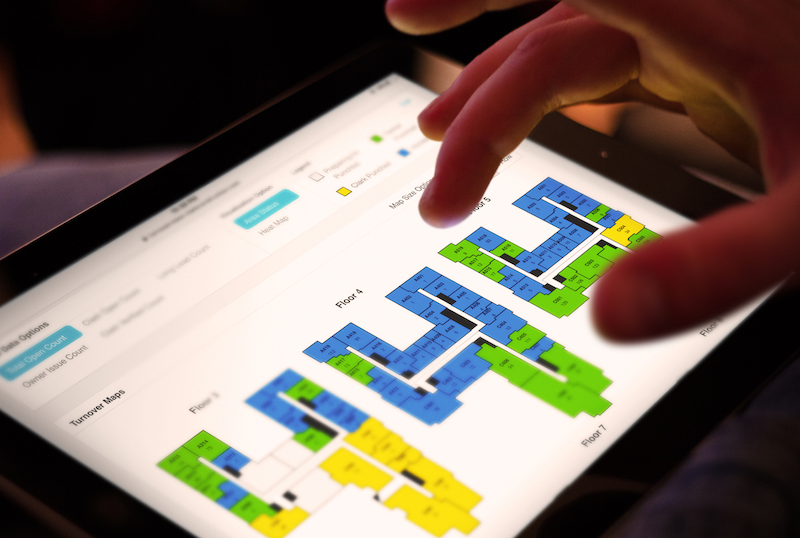
Turnover Vision uses simplified architectural floor plans as its common communications platform. Image: Clark Construction
In the November 2017 edition of its company magazine Superstructure, Clark Construction singled out R&D Group team member Ryan Nam as the driving force behind Turnover Vision. While working on a multifamily residential project, Nam came up with the idea of an interactive dashboard to leverage Clark’s practices by merging big data with visual analytics.
Turnover Vision debuted last year at the recently completed Central Place residential tower in Arlington, Va., and was expanded to Clark’s residential and mixed-use projects across the country.
Clark started with residential and hospitality projects because they typically have a lot of room design iteration. But with tweaks, the firm is now using Turnover Vision on nearly all of its projects, including museums—one of Clark Construction’s specialties.
Related Stories
Building Technology | May 5, 2017
Tips for designing and building with bathroom pods
Advancements in building technology and ongoing concerns about labor shortages make prefabrication options such as bathrooms pods primed for an awakening.
Building Technology | Apr 21, 2017
AIA selects 2016 Upjohn Research Initiative Projects
Grants awarded to initiatives that study various aspects of design within the built environment.
Building Technology | Mar 9, 2017
Prefabrication's predicament: It's much harder than it looks
Many of the nation’s largest contractors, including Gilbane, Mortensen, Skanska, and Turner, have been utilizing prefab techniques on select projects for a decade or more.
Great Solutions | Mar 8, 2017
Pop-out balcony is a breath of fresh air for stuffy hotel rooms and apartments
In less than one minute, Bloomframe transforms from an insulated picture window to an open balcony.
Building Materials | Feb 15, 2017
New metamaterial cools roofs without any energy consumption
The material is barely thicker than aluminum foil and can be economically manufactured for large-scale residential and commercial applications.
Building Technology | Feb 13, 2017
Denver’s ‘smart neighborhood’ will be packed with futuristic technology
The neighborhood will become a test lab for innovative technology.
Virtual Reality | Feb 1, 2017
Tour ancient buildings and cities as they were when new with Lithodomos VR
An Australian archeological startup is bringing the ancient world to a VR headset near you.
Building Technology | Jan 30, 2017
Machine learning could help buildings notify occupants about critical systems failures before they happen
Data from sensors built into HVAC units paired with a machine learning algorithm predicted 76 out of 124 real faults for an Italian hospital.
Building Technology | Jan 27, 2017
The driverless clinic: How buildings powered by AI can help promote wellness and enhance human connections
In the future, we envision that the smart technology in our phones will be embedded in the items we wear and the objects we use.
Building Technology | Jan 24, 2017
A U.S. startup is working with Dubai to advance 3D printing for construction
Cazza Construction Technologies is building a crane that it claims can layer more than 2,000 sf of concrete per day.


